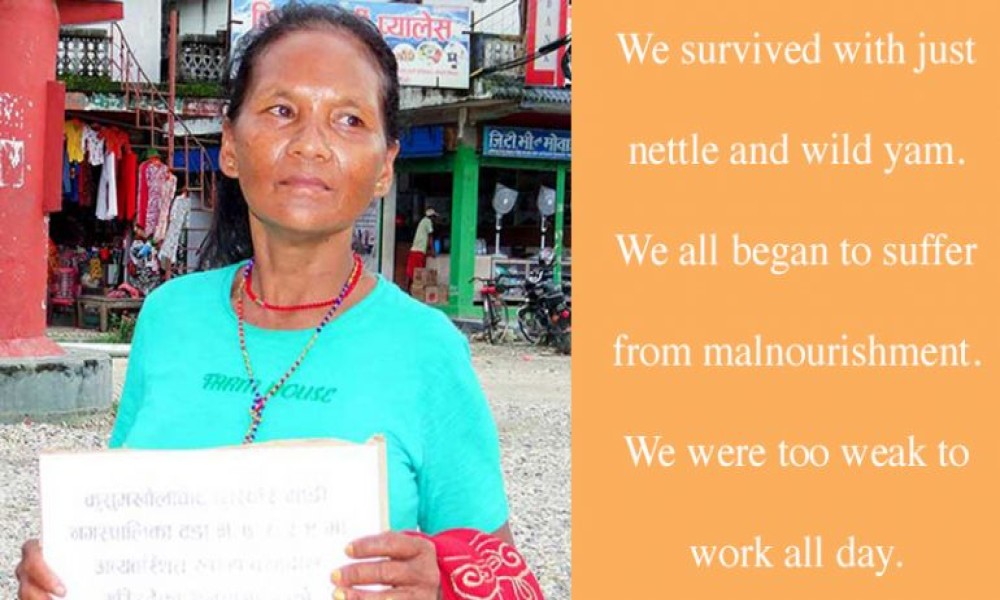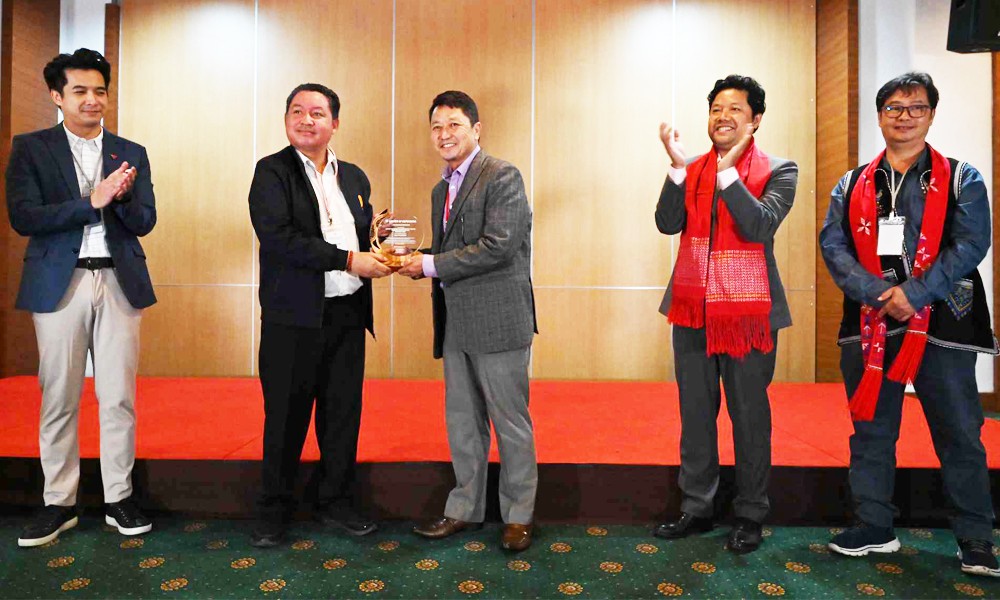"No country for Indigenous Chepang"
Shanti Kumari Chepang
I was born in a village called Siddhi, which is located in the hill area of Chitwan district. When I was 19, I was married to Ram Bahadur Chepang. We were poor, but at least we had a shelter.
During one monsoon season, heavy rains triggered flood and landslides in our village. We survived but our house was destroyed by a massive mudslide. So, we decided to leave our village for once and all. Someone told us that there was a large swathe of fertile land by Kusum Khola in the plains area of Chitwan, where we could restart our lives. Then, we made up our mind to migrate to Kusum Khola.
We survived with just nettle and wild yam. We all began to suffer from malnourishment. We were too weak to work all day.
One morning, we woke up early and began descending to Kusum Khola. I had had four daughters by then, including one newborn. We did not have lots of belongings to carry. We just had one cooking pot, bucket and three plates. When we reached Kusum Khola, we built a hut using some bamboo and dry leaves.
The land in Kusum Khola was not as fertile as we thought it would be. It was filled with sand grains and surrounded by forest. We started farming, but it took us three years to reap our first harvest.
Also read this: No country for indigenous Chepang people
The first three years of our lives in Kusum Khola were extremely difficult. We survived with just nettle and wild yam. We all began to suffer from malnourishment. We were too weak to work all day. We would sometimes earn money by selling broom grass collected from the jungle, which we would spend to buy rice grains in the local market.
After three years, we were able to grow maize and buckwheat. But rice was still a luxury for us. After coming to Kusum Khola, I gave birth to two more children. My husband started drinking alcohol. He contracted tuberculosis. He would refused to go to hospital. One day, when I returned home from work, I found him dead. He had killed himself. He would perhaps not want to be a burden on us anymore.
He had killed himself. He would perhaps not want to be a burden on us anymore.
After my husband's death, I had to raise my children singlehandedly. I was always worried about where to get next meals for my children. On the other hand, wild animals coming from Chitwn National Park would often cause trouble for us. To make matters worse, the park authorities began pressing us to evacuate from Kusum Khola. But we had nowhere else to go.
In 2017, when most parts of the Terai were flood, our house also submerged under water. We spend many nights in the open. That was when we heard that Madi Municipality would provide us with land and house in the nearby village of Raigaun. That news turned out to be true. We indeed got a two-room concrete house from Madi Municipality, but Chitwan National Park did not allow us to roof the house.
My life has been full of struggle for survival, and it seems my days of struggle are not over just yet. I am in trouble.
How could we live in a house that had no roof? So, I do not live in that house any longer. But now, my children have grown up and they have started separate families. I sometimes live with my son and sometimes with daughter.
Since I am a single woman, I have got some goats to raise. But I find it difficult to raise goats because I do not know where I will be living the next week. Only if the house allocated by the municipality had roof over it, I could have lived there at ease. But I am hearing the park authorities are forcing us out of our roofless house as well.
My life has been full of struggle for survival, and it seems my days of struggle are not over just yet. I am in trouble.
Based on a field reporting by Bibek Pokharel in Naya Patrika daily









